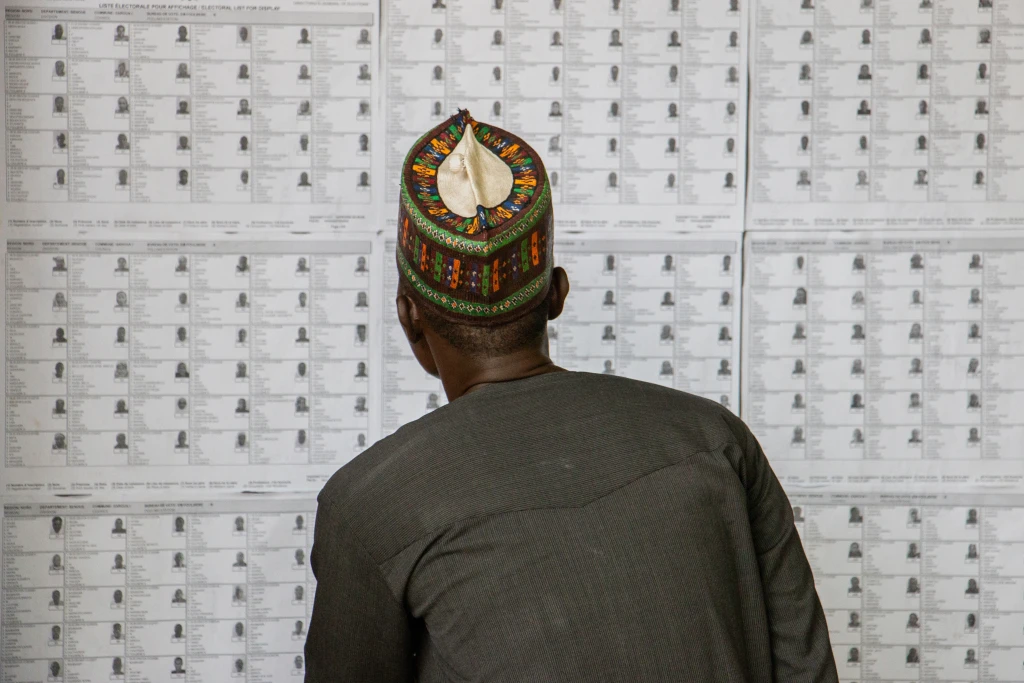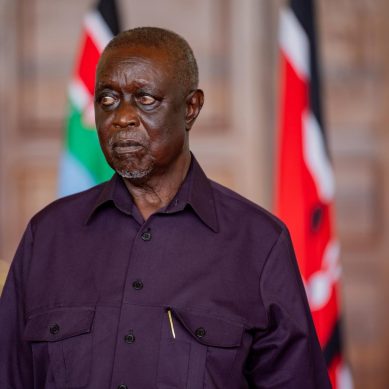
The United States is prepared to move towards greater engagement with the Taliban as it seeks to tread a fine line between its human rights concerns and helping the Afghan people in the midst of one of the world’s worst humanitarian crises, interviews with top US officials and senior aid figures reveal.
Interviewed on the sidelines of a donor meeting in Istanbul last month, Karen Decker, chargé d’affaires of the US mission to Afghanistan, said Washington has “learned the hard way that isolation is ruinous. It’s ruinous for the Afghan people. It’s ruinous for the region”.
The United States has adopted a policy of “pragmatic engagement” with Afghanistan’s Taliban-led government, which Washington has yet to recognise as official more than two years after the former Western-backed leaders fled Kabul and the Taliban re-established its Islamic Emirate in the country.
After the Taliban returned to power in August 2021, the already struggling economy was dealt an even bigger blow as the US, which signed a peace deal with the group in 2020 and other countries immediately cut back aid, placed several Taliban leaders under sanctions, and imposed restrictions on the nation’s banks.
These cutbacks and constraints have deepened a “complex humanitarian emergency” that sees 23.7 million Afghans requiring international assistance this year.
“Engagement is necessary, but we have to find a way to balance engagement while not compromising on our principles.”
With the Taliban still refusing to allow girls and women to study beyond the sixth grade, reports of media worker detentions and a declaration by its leader that he would subject women to death by stoning, Western capitals and international NGOs remain wary of being seen as getting too close to the Islamic Emirate.
Despite this, the UN, several international and local NGOs and Washington have all signalled over the past year that avoiding the Taliban won’t solve Afghanistan’s economic and humanitarian issues.
In the most in-depth interview to date with a top US official on Taliban engagement, Decker said Washington is now in a position where it must “very carefully navigate the non-recognition policy”, which requires a delicate balance of keeping in mind that the Taliban took power by force rather than a Democratic vote while still finding ways to reach the millions of Afghans who require emergency assistance.
In an acknowledgement of the fact that more than half the Afghan population still requires foreign aid, senior diplomatic, human rights and NGO sources speaking in Istanbul and Kabul over the past several months underlined that solving Afghanistan’s problems will require talking more to the Islamic Emirate.
“Engagement is necessary, but we have to find a way to balance engagement while not compromising on our principles,” said one senior international NGO source, who asked for anonymity due to the sensitive nature of the discussions.
Decker agreed, saying Washington would continue to engage with the Taliban on “pragmatic issues” with humanitarian assistance and human rights being her primary areas of concern.
In order to achieve this, Decker and her team, which is based in Qatar, hold weekly meetings with Taliban representatives in Doha, conduct phone meetings and make a point of seeing Islamic Emirate government officials when they travel in the Middle East and Central Asia.
Because its non-recognition policy precludes US officials from working in the country, Washington has partnered with local and international groups on the ground in order to deliver assistance directly to the Afghan people. But even with that cooperation, it’s not always so easy, as these groups must also tread carefully amid increasing Taliban restrictions and regulations.
They have to find ways to deliver as much aid as possible without raising the ire of the Islamic Emirate, which has tried to restrict women’s work in the aid sector and which routinely expresses frustration at allegations of NGO waste and effectiveness that date back to 20 years of US-led occupation.
“It’s complex, but it is what they have to do in order to deliver to the Afghan people,” one senior US official said, speaking on condition of anonymity about the careful calculus that even the most basic of aid efforts require under the Islamic Emirate.
Even though there is still a long way to go, particularly in terms of addressing US human rights concerns, Decker said she feels Washington’s efforts have led to some positive results.
“Eighteen months ago, we were worried about famine and there is no famine in Afghanistan,” Decker said, crediting this largely to the work of local and international aid organisations. However, she pointed out that Afghans still need more food assistance than in the past: “So, in some respects, you trade one problem for another.”
Decker raised another issue that adds to the difficulty of engaging further: the Islamic Emirate’s unwillingness to acknowledge any problems in the country: “They like to present Afghanistan as a success story… [and] they don’t want anyone thinking there’s anything wrong.”
If the Islamic Emirate were more straightforward to deal with, then humanitarian actors would save a lot of time and money and be able to reach those in need more quickly, she said: “We use a lot of time and effort making it work, because of the Taliban. They are fundamentally the challenge to making this work. We are able to navigate [it], but it would be much more efficient if the Taliban were much more [open].”
Decker did, however, give the Taliban some credit, saying they had shown some flexibility, especially in emergency situations. She pointed to the Islamic Emirate’s responses to a series of earthquakes that rocked the western province of Herat, and the recent mass expulsions of hundreds of thousands of Afghans from neighbouring Pakistan, as examples of when the Taliban saw it necessary to amend or loosen some of their restrictions. “Women were suddenly allowed to work because they had to reach women beneficiaries,” she said.
These engagement efforts haven’t been without their critics. Many in the Afghan diaspora, including former government officials, decry any efforts to work with – or even speak to – the Taliban.
“Warming up to the Taliban is not the right move. On the contrary, it sends a dangerous message that their behaviour is working and grants them the respect of engagement, which they have not earned,” read a statement earlier this year from the Canadian Women for Afghan Women group.
There are also US President Joe Biden’s Republican opponents in Washington who have weaponised the ongoing human rights concerns as a criticism of the Biden administration during an election year. Simply ignoring the group will do nothing to improve the lives of the millions of Afghans who remain in need.
“Obviously, by failing to treat the Taliban as the threat they are, this administration has not [discouraged] their malign activity. Instead, they’ve emboldened them,” Michael McCaul, the chairman of the influential House Foreign Affairs Committee, told a January hearing.
However, all the sources interviewed said they saw little benefit in pretending the Taliban do not exist. With an “overwhelming need in the country”, simply ignoring the group will do nothing to improve the lives of the millions of Afghans who remain in need, said Decker.
“It’s not in anyone’s interest for us to isolate the country,” she added. “And I say this over and over: I feel strongly that if the United States does not advocate for the Afghan people, nobody will. So, I don’t need any more motivation than that.”
The senior international NGO official agreed, saying: “We understand the very real human rights concerns that many people have, but we have to balance that with the humanitarian need as well and addressing that need requires dialogue and engagement.”
Still, Washington insists it has clear red lines.
- The New Humanitarian report







